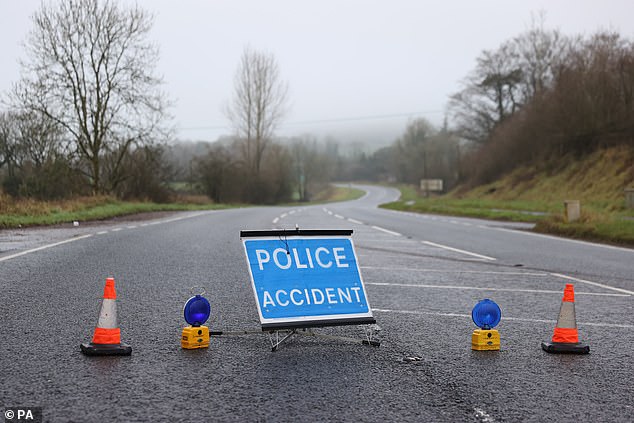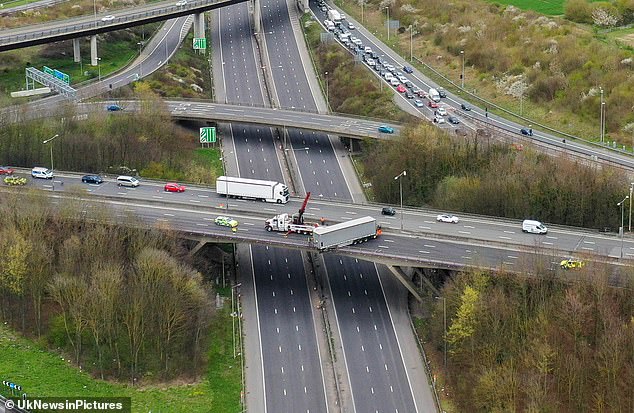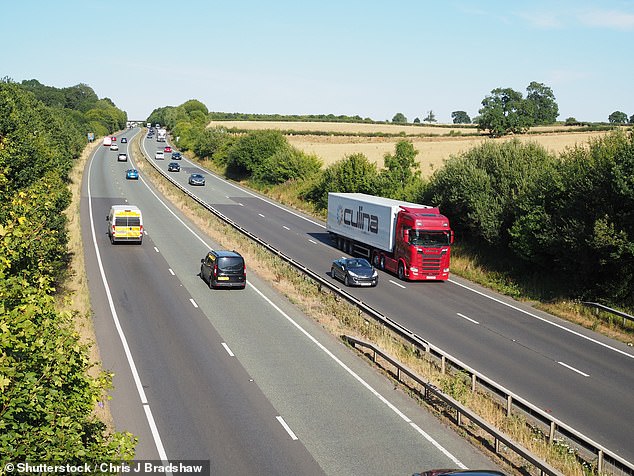- Fleet mileage before a collision decreased by almost 20% in 2023
New data shows professional drivers travel fewer miles before a crash, a worrying safety trend.
The total collision distance travelled by trucks, vans or taxis in the UK has fallen by almost a fifth (19.2 per cent) in the last year, according to a new report from transport solutions leader Geotab.
This has led to calls for renewed attention to the safety of vehicle fleets.
A new study has found that the number of miles travelled by professional drivers (those behind the wheel of HGVs, vans and buses) before a collision has declined in a worrying trend.
Geolab analyzed telematics data from more than one million commercial vehicles worldwide.
In 2023, the total distance travelled by professional drivers before a collision was 740,000, up from 920,000.
For a large British company that manages a fleet of 1,000 heavy goods vehicles each travelling 120,000 kilometres a year, that meant there were an average of 20 collisions last year.
This is a worrying reversal of 2022’s 17.5 percent positive improvement in miles traveled before a collision compared to 2021.

The general trend worldwide was an increase in the number of collisions, with Germany being the worst, followed by Portugal and the United Kingdom.
Geotab State of Commercial Transportation 2024 The report, which also concluded that the UK is better prepared than any of its European neighbours to switch its fleets to electric vehicles, analysed telematics data from one million commercial vehicles worldwide and, alarmingly, the overall trend globally was towards an increase in the number of collisions.
Germany was the worst performing market, recording a 27.3 percent reduction in miles traveled before an accident.
Portugal ranked second worst, with a 30 percent decline, followed by the UK in third and the US in fourth, having seen a 12.6 percent drop in miles traveled per collision.
Some countries bucked this trend and saw a reassuring increase in kilometres travelled before a collision.
The most significant countries were Spain, with a 5.7 percent increase, Italy with a 5.4 percent jump and Brazil with a 4 percent increase, suggesting that these countries are taking steps to improve vehicle safety.

David Savage, Vice President for the UK and Ireland at Geotab, said: “Just over 20 per cent of all road traffic fatalities occur in work-related collisions. As an industry, we have a duty to reduce these numbers, and we can do so with better safety measures.”
Calling for a greater focus on fleet safety measures, Geotab found that its own safety features reduce the collision rate by 40 percent, compared to those that do not use such features.
Increasing road safety measures, including smart motorways, speed limits and low-traffic neighbourhoods, are among the key driving policies up for debate ahead of the upcoming election, so the next government is likely to look at ways to improve crash rates.
“Keeping drivers and other road users safe should be a priority for all fleet decision makers,” said David Savage, Vice President UK & Ireland at Geotab.
“Just over 20 per cent of all road traffic accident victims occur in work-related collisions. As an industry, we have a duty to reduce these figures, which we can do with better safety measures.”


